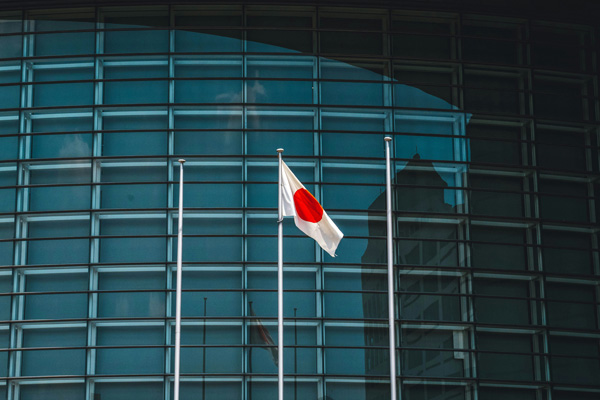Japan’s ruling party elects Ishiba Shigeru as its leader

[Japanese flag in the center of Nagoya, Aichi, Japan. Photo Credit to Unsplash]
Shigeru Ishiba, former defense minister of Japan, was elected as the 102nd Prime Minister of Japan in the Liberal Democratic Party presidential election held on September 27th.
Last month, Japan’s current Prime Minister, Kishida Fumio, declared that he will not run for the next election of the LDP due to his and his cabinet’s unsatisfactory performance despite the Japanese people’s high expectations.
On November 16, 2022, the Japanese Communist Party’s media, “ the AKAHATA,” reported that five out of six factions under the LDP had not recorded their political funds properly in the Political Funding Report.
The LDP has pressured its members to force companies to purchase tickets required to attend the political fund party, which cost about 200,000 Japanese yen per ticket.
The revenue from the party afterward was used as political funds, and the amount from 2018 to 2020 was recorded at about 24,220,000 Japanese yen.
Especially, the fact that the largest faction in the LDP, the Abe faction, had the least amount of political funds among the other five increased the seriousness of this incident.
As the LDP consistently maintained its position as the government party of Japan, this incident caused the collapse of the strong wall built with endless support from its advocates.
As a result, the LDP adopted a strategy to rebrand the party’s image from corruption to cleanliness by dismissing all political factions except one and announcing the change of its leader.
The disbanded factions include Kishida’s Kishida faction, former PM Abe Shinzo’s Abe faction, and others.
This year’s LDP leader election had a total of 9 candidates, which included Sanae Takaichi, Takayuki Kobayashi, Yoshimasa Hayashi, Shinjiro Koizumi, Yoko Kamikawa, Katsunobu Kato, Taro Kono, Shigeru Ishiba, and Toshimitsu Motegi.
Among the 9 candidates, the top 3 candidates mainly led the polls, which are Shigeru Ishiba, Sanae Takaichi, and Shinjiro Koizumi.
According to Nippon News Network’s (NNN) most recent poll held on the party members, Shigeru Ishiba kept first place with a 31% approval rating, Sanae Takaichi remained in second place with a 28% approval rating, and Koizumi Shinziro stayed in third place with a 14% approval rating.
Shinjiro Koizumi, also known as Junichiro Koizumi, the former Japanese Prime Minister’s son, got the spotlight the Japanese media due to his impactful actions and his age.
Koizumi is the first member of the cabinet who used maternity leave as a male, which contributed to shifting Japanese people’s common belief that men should not use maternity leave.
His young age also increased his popularity as he received the title of “The youngest PM candidate of Japan”.
On the other hand, Sanae Takaichi’s actions raised deep concerns about the relationship between Korea and Japan since she clarified that her visit to Yasukuni Shrine will continue no matter her political position.
The Yasukuni Shrine continues to commemorate the A-class war criminals from World War 2, and thus, Japanese politicians who consistently visited the shrine were criticized not only in Korea but worldwide.
Shigeru Ishiba’s claims generally opposed all other candidates as he acknowledged Japan’s war crimes and is looking to maintain a decent relationship with Korea.
However, some experts claim that Shigeru Ishiba’s current stance proves that his absolute support from the party is weak since the party follows the opposite belief.
At the primary voting round , Sanae gained 181 votes in total and Ishiba got 154 votes, both becoming eligible for the final round.
Koizumi received 136 votes which led to his failure to move on, and all other candidates were unable to receive more than 70 votes.
As the primary vote result showed Sanae’s upper hand, it was expected that Sanae had a high possibility of earning the title of “Japan’s first female Prime Minister”.
Nevertheless, the results from the secondary voting round showed that Ishiba Shigeru received a total of 215 votes, and Sanae Takaichi got 194 votes.
After Ishiba was elected, he gave a short speech: “I will try my best to make Japan the safest and the greatest nation where all people can enjoy their lives.”
It is highly anticipated that Ishiba Shigeru will continue efforts to build a strong relationship with Korea as he suggests a reasonable point of view.

- MinSeop (Mason) Kim / Grade 9
- St. Johnsbury Academy Jeju

![THE HERALD STUDENT REPORTERS [US]](/assets/images/logo_student_us.png)
![THE HERALD STUDENT REPORTERS [Canada]](/assets/images/logo_student_ca.png)
